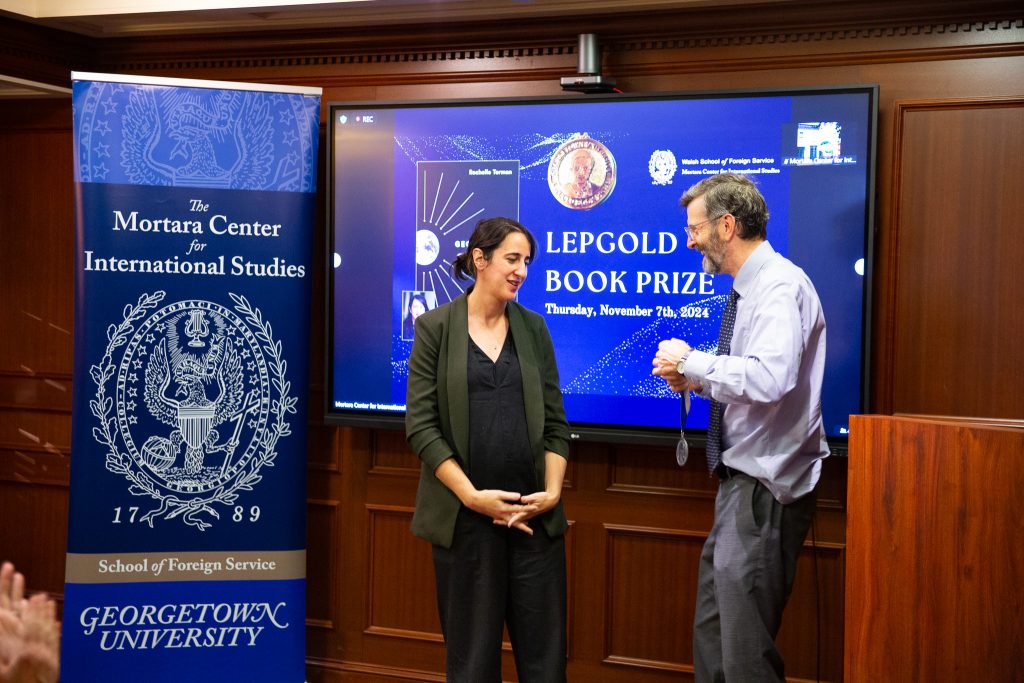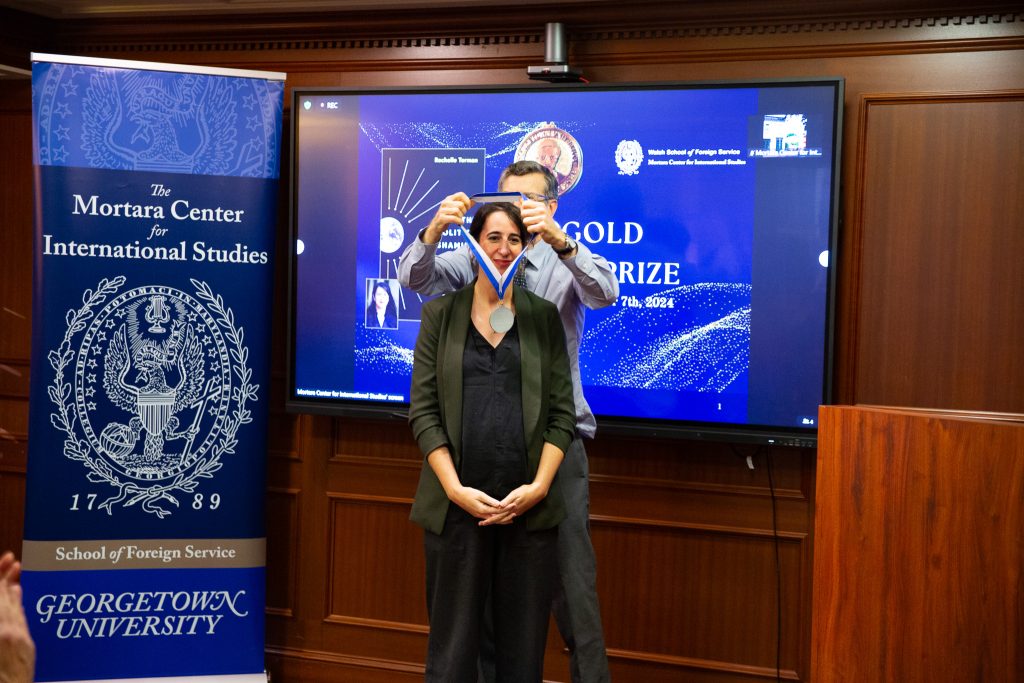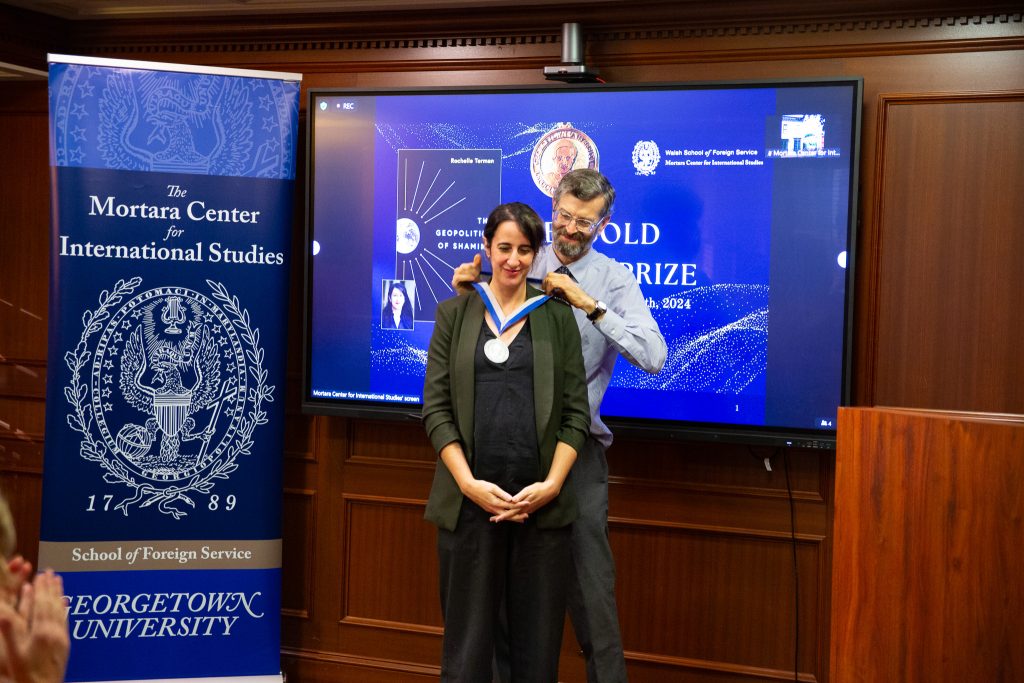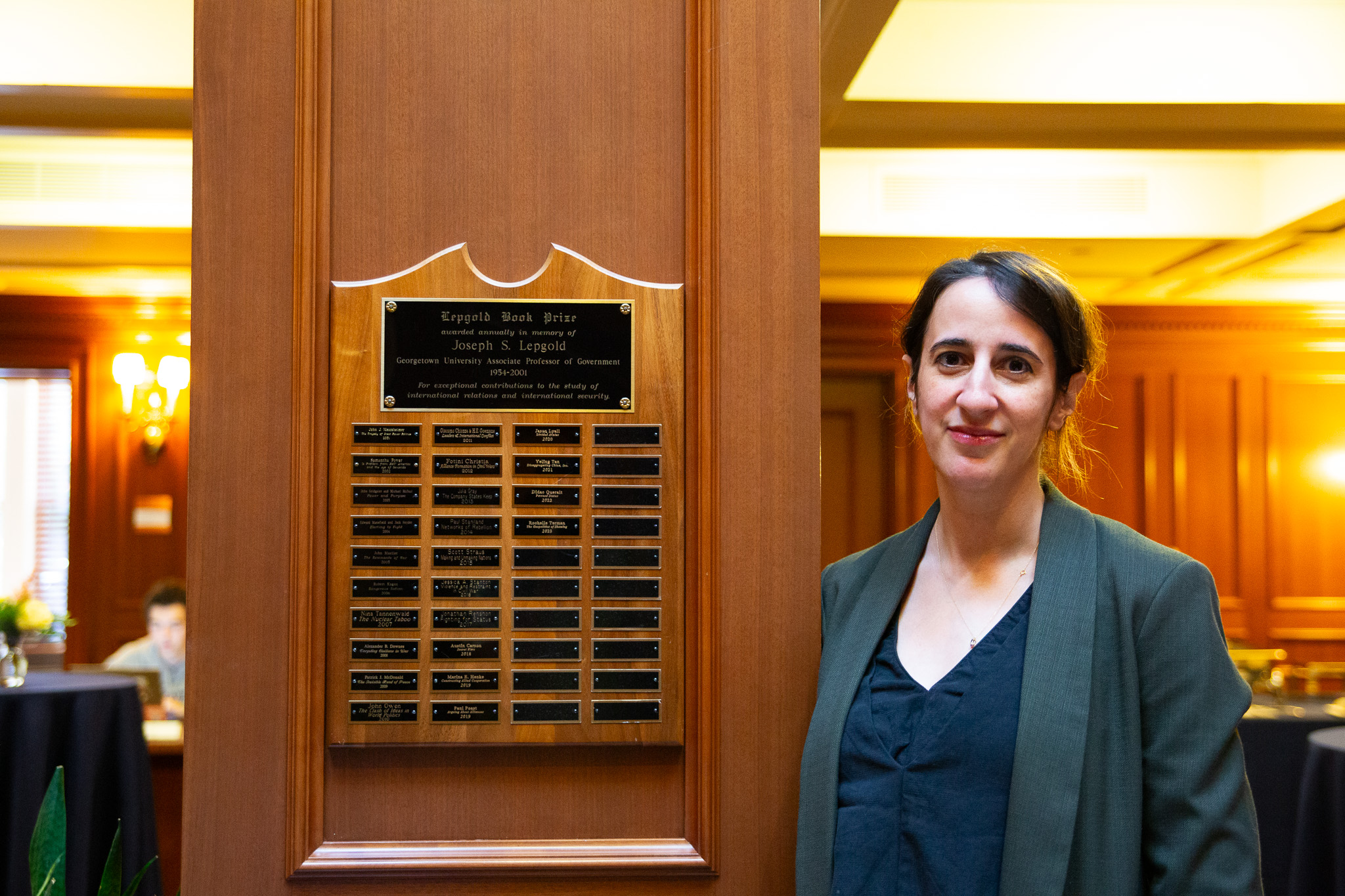Celebrating the Twenty-Third Annual Lepgold Book Prize
Originally published on October 13, this article has been updated to include a link to watch Rochelle Terman’s presentation delivered on November 7, 2024.
The Lepgold Book Prize is given annually to the best book in international relations published in the preceding calendar year. The award is named after Georgetown professor Joseph S. Lepgold and serves to honor his memory and continue to recognize exceptional work in the field.
History
Joseph S. Lepgold was a distinguished professor in the Government department at Georgetown University’s School of Foreign Service. Shortly after earning his PhD at Stanford, Lepgold would join the Georgetown faculty in the School of Foreign Service. He was a world-recognized expert in international relations whose research was cited and whose books were sold globally. He worked at the university from 1990 until his tragic death in December 2001.
Lepgold’s colleagues described him as caring, fun, and extremely passionate about all issues related to development and the future of international relations. One such colleague of Lepgold is Professor Andrew Bennett, Associate Chair and Director of Graduate Studies of the Government Department at Georgetown. Although he and Professor Lepgold were initially competing for the same position at Georgetown in 1990, both scholars eventually became close friends, co-authoring articles and conducting research together. At the time, both professors were some of the best-trained scholars in research methods and execution, helping bring nuanced perspectives to the field.
Professor Lepgold’s life was sadly cut short in December 2001. While he was in Paris with his family for a conference, Lepgold’s hotel went up in flames due to an electrical fire, taking his life as well as that of his 10-year-old son. Shocked by the sudden loss of a young yet brilliant professor, Lepgold’s colleagues, students, and friends across the university celebrated his life in January of the next year at a dignified ceremony at the heart of campus in the Edward B. Bunn, S.J. Intercultural Center. Determined to honor the memory of Professor Lepgold’s contributions, Professor Bennett led Georgetown’s Mortara Center to establish the Lepgold Prize, recognizing scholars who exhibited Lepgold’s passion for international affairs, as well as his commitment to excellence in scholarship.
The Lepgold Prize Today
Today, the Prize recognizes the best book in the study of international relations published in the preceding calendar year. Particular emphasis is placed on books discussing critical policy challenges of the modern world. In addition to the medal and a prize of $1,000, the winning author is invited to speak at the Mortara Center about their scholarship.

This year’s selection committee consisted of Professor Andrew Bennett and former director of the Mortara Center, Dr. Kathleen R. McNamara – an esteemed Georgetown professor, author, and current co-director of the Global Political Economy Project. Three main rules govern the nomination process for the prize: an author cannot nominate themself, nominated books must be published in the past calendar year, and nominees cannot be affiliated with Georgetown University. This year, over thirty books were nominated and reviewed by the selection committee, ultimately naming Dr. Rochelle L. Terman and her book, The Geopolitics of Shaming, as this year’s winner.

Professor Bennett, who has been a part of the selection committee almost every year, described the winning entries as those that “ask an A+ question to come up with an A+ answer through A+ methods.” He also highlighted that multimethod books have historically done well, as he strongly believes in combining quantitative and qualitative research methods. When asked why he continues to come back year after year, Professor Bennett answered that he sees how the Prize continues to bring excitement to nominees, opens a space for dialogue, and brings people together with a dinner and conference. “When choosing a winner, I like to ask myself what Joe [Lepgold] would think”.
The Impact of the Lepgold Prize

The Lepgold Prize has positively impacted the field of international relations research and the awardees’ careers. Considering that most scholars have been recognized early in their careers (most of them pre-tenure), the Lepgold Book Prize can serve to amplify their work and contributions to the field.
When 2014 Lepgold Prize winner Dr. Paul Staniland, professor of Political Science at the University of Chicago, was asked about the impacts and significance of the award, he said: “Receiving the Lepgold Award was one of the most exciting moments of my career. It showed that there was an actual audience for my work – most scholarly research disappears into the ether and you never know how it is received. It was wonderful to learn that my book had been read, evaluated, and assessed positively. The Lepgold Award is a huge service to the discipline that helps us understand emerging trends and areas of focus in the study of international relations.”

Similarly, Dr. Didac Queralt, winner of the 2022 award with Pawned States wrote: “Since I received the award less than 12 months ago, it is too soon to tell how much of an impact it will have on my career. However, there is no doubt that it will be positive, and I am very grateful and honored.”
Queralt also encouraged the Georgetown community to get involved and inspired by the award: “I hope it inspires Georgetown students to incorporate history into their research projects, either to understand the origins of modern-day problems or to use past episodes as real-life laboratories for analyzing present-day phenomena. Many of the challenges we face today have been addressed in the past, and we can learn from those successes and mistakes to inform better theories and policy responses today.”
This Year’s Winner
Dr. Terman learned about the award through some of her colleagues, previous winners of the Lepgold Prize such as Paul Poast, Austin Carson, and John Mearsheimer. In her own words: “The Geopolitics of Shaming addresses human rights ‘naming and shaming’: what drives this behavior, when it works, and when it backfires. I became interested in this subject while working with a human rights organization during and after college. When I entered graduate school and began reading the IR literature on the topic, I noticed a discrepancy between the theories and my lived experience. That motivated me to work on this subject for my PhD dissertation, which eventually served as the basis for my book.”
She also stated that the award serves as encouragement to take on “future ambitious projects” in the field of IR, knowing that her contribution has not gone unnoticed.
More about Dr. Terman and her book The Geopolitics of Shaming can be found in a previous article published on our website.
Watch Dr. Rochelle L. Terman’s presentation given at the Mortara Center on Thursday, November 7, 2024, on our YouTube channel.





